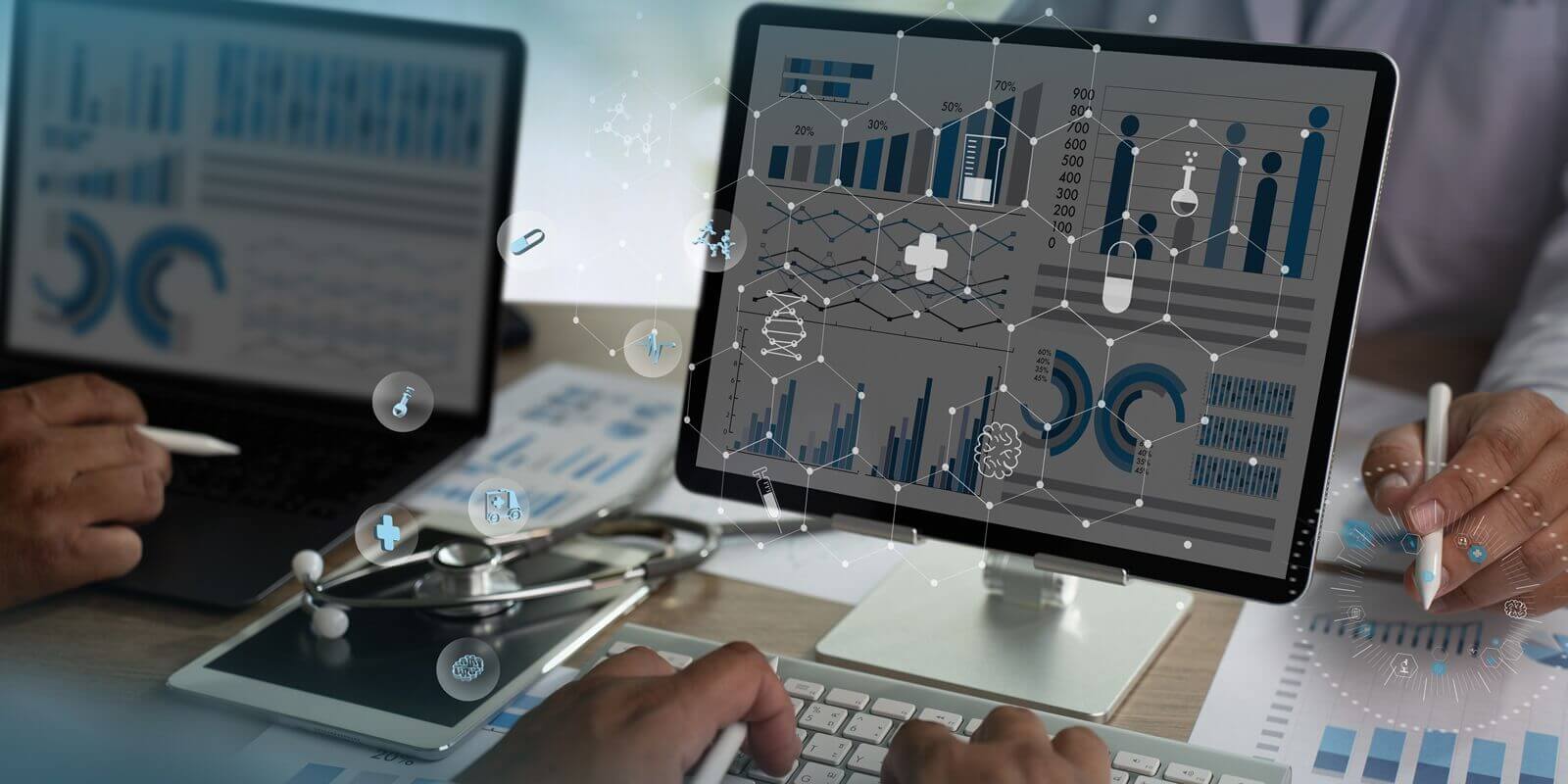Updated on: 3/26/2025
Key Takeaways
- Digital Transformation: The shift from paper-based to digital medical claims processing represents a fundamental transformation in healthcare billing, offering increased efficiency, reduced errors, and faster reimbursement through automation and electronic submission.
- Process Optimization: Custom medical claims software streamlines operations through features like comprehensive claims integration, automated review management, and electronic data interchange, significantly reducing administrative burden and improving accuracy.
- Financial and Patient Impact: Implementation of medical claims software delivers both financial benefits (faster processing, reduced errors, improved revenue) and enhanced patient experience (quicker claims resolution, better service focus), while ensuring compliance with healthcare regulations.
In the healthcare sector, paper-based systems that involve filling out extensive forms, manually coding procedures, and physically mailing claims to insurance companies have traditionally dominated billing processes.
Such processes are time-consuming and susceptible to errors, leading to delays and often causing frustration for healthcare providers and patients alike. However, as the healthcare industry seeks greater efficiency and accuracy, the emergence of medical claims software represents a significant advancement.
Medical claims software, a digital innovation, is designed to streamline billing. It enables electronic coding of procedures, instant claims submission, and real-time status tracking.
The adoption of this software is transforming healthcare billing by significantly reducing the time and resources spent on processing claims, minimizing errors, and accelerating reimbursements.
Simply put, integrating medical claims software in operations is actively reshaping healthcare billing as we know it, heralding a future where administrative tasks are simplified, allowing the focus to return to patient care.
Historical Context of Medical Billing
 A relic of the past, the traditional paper-based medical billing system was characterized by its manual and labor-intensive nature. In this system, healthcare providers would document services and procedures in paper records and then manually translate these into billing codes.
A relic of the past, the traditional paper-based medical billing system was characterized by its manual and labor-intensive nature. In this system, healthcare providers would document services and procedures in paper records and then manually translate these into billing codes.
These codes, essential for insurance claims, were often susceptible to human error during the transcription process. Once coded, the claims were physically mailed to insurance companies, initiating a slow and cumbersome cycle of processing and reimbursement.
This paper-based approach was fraught with challenges and inefficiencies that not only consumed significant time and manpower but also increased the likelihood of errors, which could lead to claim rejections or delays in payments.
Correcting these errors involved additional paperwork and communication, further prolonging the cycle. Additionally, physically storing paper records typically required extensive space and also posed risks of possible damage or loss.
The healthcare industry, driven by the need for greater efficiency and accuracy, started to look for solutions to overcome these challenges. This quest led to the gradual adoption of digital technologies and set the stage for a transformation in medical billing practices.
The shift aimed to reduce human error, speed up the billing process, and improve overall efficiency. These systems became more sophisticated as technology advanced, paving the way for today’s digital medical claims software.
Importance of Medical Claims Software
Nowadays, medical claims software is actively redefining how medical billing is handled by automating medical claims processing with insurance providers.
Its primary function is to ensure that healthcare services are accurately coded, submitted, and reimbursed promptly and efficiently. It is essential in streamlining the claims process by transforming complex medical services into standardized billing codes.
Key features of medical claims software include automated coding, electronic claim submission, and real-time eligibility checks. Automated coding significantly reduces the likelihood of human error by translating medical services into correct billing codes.
Electronic claim submission accelerates the process, allowing for instant dispatch of claims to insurance providers, which speeds up the reimbursement cycle while also making tracking the status of each claim easier and more transparent.
Furthermore, real-time eligibility checks are a boon to both providers and patients, offering immediate verification of a patient’s insurance coverage, thereby reducing the incidence of claim denials due to coverage issues.
The benefits of medical claims software over traditional paper-based methods are manifold. Accuracy is greatly enhanced as the automated systems reduce the errors associated with manual coding and data entry.
Speed is another significant advantage; the electronic processing of claims drastically cuts down the time from service delivery to reimbursement.
Moreover, the paperwork reduction is a notable benefit, leading to a more environmentally friendly approach and freeing up valuable resources that can be redirected toward patient care.
Simply put, medical claims software represents a major leap forward in healthcare administration, offering a more efficient, accurate, and streamlined process for managing medical claims.
Impact on Healthcare Billing Processes
Integrating medical claims software into healthcare billing processes has brought about significant improvements in efficiency and accuracy. Highlighting this, one of the most notable impacts is the streamlining of billing and coding processes.
The automation of converting medical procedures into billing codes substantially diminishes the necessity for manual data entry, thereby cutting down on the time and effort needed to compile and file claims. This automation speeds up the billing cycle and ensures greater consistency in how services are coded and billed.
Another key impact of this greater digital transformation is the substantial reduction in potential administrative errors and claim rejections. Traditional manual processes were prone to human error, often leading to incorrect coding and subsequent claim denials.
With its automated coding and real-time error checking, medical claims software significantly lowers the likelihood of such mistakes happening in the first place. As a result, there’s a marked decrease in the number of claims rejected due to coding errors, leading to a smoother and more reliable reimbursement process.
Furthermore, the efficiency of claim processing times and payments has seen considerable improvement. The swift electronic submission of claims and its ability to track and manage these claims means that payments are processed and received more quickly.
Features of Custom Medical Claims Processing Software
 To address the challenges of medical billing, custom medical claims processing software stands out as a significant advancement for healthcare providers by transforming the management of claims processing, reporting, and financial transactions.
To address the challenges of medical billing, custom medical claims processing software stands out as a significant advancement for healthcare providers by transforming the management of claims processing, reporting, and financial transactions.
These specialized solutions are loaded with innovative features essential for contemporary healthcare claims administration, focusing on augmenting efficiency, precision, and overall operational productivity.
A prominent feature of this software is its capability for comprehensive claims integration by creating a unified digital repository for all health records, encompassing medical, dental, prescription, and vision records.
This integration facilitates effortless access and efficient management of claims while automating the entire spectrum of tasks, from initial claim submission to handling payer notifications and managing denials, thus enhancing productivity and ensuring adherence to compliance standards.
It also excels in claim review management. It is meticulously designed to minimize errors and reduce the frequency of claim denials by complying with prevailing industry norms. Integrated tools within are adept at identifying discrepancies in coding and proposing necessary rectifications, thereby refining the claims-handling process.
Advanced reporting capabilities are a cornerstone of this software, equipped with user-friendly dashboards that pinpoint typical causes for claim denials and rejections. It offers customizable reporting tools that provide in-depth insights, granting a detailed perspective on claims data, which is essential for effective revenue management.
A key aspect of custom medical claims processing software is its implementation of Electronic Data Interchange services. With a focus on the secure transmission of sensitive claim information, the software integrates state-of-the-art EDI systems capable of managing millions of claims transactions both swiftly and compliantly.
Additionally, custom medical claims processing software encompasses functionalities for status and remittance management. It efficiently collects data from payers, compiling lists of approved, rejected, and denied claims, thereby facilitating prompt action and decreasing the duration of accounts receivable.
Its automated remittance management feature replaces manual payment postings, utilizing Electronic Remittance Advice transactions from payers to minimize the need for follow-ups and manual adjustments.
Benefits of Custom Medical Claims Processing Software
Implementing custom medical claims processing software brings an array of advantages that tangibly and positively impact various facets of healthcare organizations, spanning from economic benefits to enhancing the patient care experience.
A standout advantage of this software is its proficiency in streamlining the claims evaluation process. Designed to enhance this directly, it simplifies the identification and rejection of dubious claims, which are essential for preventing financial losses due to fraud or inaccuracies. Such efficiency is key to upholding the integrity of insurance operations and guarding against fiscal irregularities.
The software’s capability to expedite claims processing allows healthcare providers to manage a higher volume of assessments daily without necessitating additional personnel, optimizing staff and resource allocation to help drive productivity and profitability.
Furthermore, it significantly enriches the patient experience by accelerating and refining claims processing accuracy, which allows patients to concentrate more on their medical treatment and less on the intricacies of financial transactions involved in their care.
This ultimately leads to a smoother, more patient-focused experience, which boosts patient satisfaction and fosters greater trust in healthcare services.
The custom medical claims processing software is innovatively designed, integrating an intuitive interface with industry-compliant functionalities and advanced technology. It aims to revolutionize how healthcare organizations manage claims processing, reporting, and financial transactions.
This powerful, customizable tool elevates operational efficiency and accuracy, augments revenue, and improves patient contentment, positioning it as a transformative element in healthcare management.
Adopting this software represents a strategic and forward-thinking decision for healthcare providers aiming to advance their operational modalities and elevate patient services.
The firsthand experience of the operational transformation brought about by medical claims processing software is essential since it fosters financial benefits while significantly enhancing healthcare service delivery.
Trusting The Experts to Help
 Adopting custom medical claims processing software offers substantial benefits for healthcare organizations. It actively streamlines the claims process, enhancing efficiency and accuracy, significantly boosting revenue, and improving patient experiences.
Adopting custom medical claims processing software offers substantial benefits for healthcare organizations. It actively streamlines the claims process, enhancing efficiency and accuracy, significantly boosting revenue, and improving patient experiences.
Utilizing this kind of advanced technology is pivotal in navigating the complexities of medical billing and claims management in today’s fast-paced healthcare environment.
For healthcare organizations looking to optimize their claims processing, improve financial performance, and enhance patient satisfaction, Orases offers an ideal solution with its customizable medical claims processing software.
Carefully designed to meet your organization’s unique and specific needs, Orases provides cutting-edge technology designed to optimize your operations and elevate patient care.
You can call Orases at 1-(301)-756-5527 or visit them online to schedule a free 30-minute consultation to learn more and take the first step towards transforming your healthcare management approach.






